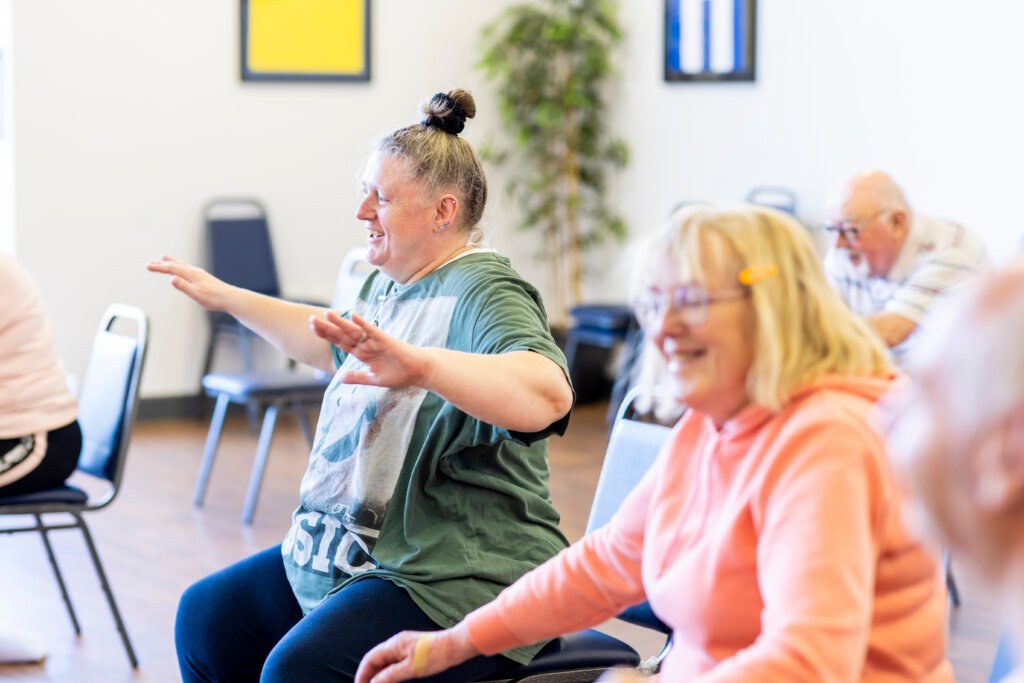
Supporting good mental health as we age
It’s important for all women, especially as we age, to feel connected and cared for. Being close to family, friends, and our community keeps our minds healthy. Every woman should have a safe home, enough money, and the right to live without fear.
In her book about staying healthy as we age, Professor Catherine Szoeke says that bad things sometimes happen in life, and we can’t always stop them. But we can stay strong by keeping a positive attitude.
Lydia Brown, a psychologist, reminds us that being kind to ourselves can help us enjoy getting older. Getting older has its upsides – like feeling more balanced, having fewer mental health troubles, and getting wiser. Treating ourselves with love can also make it easier to handle the changes that come with age.

Being active is great for our minds too. A study from the UK says that staying physically active not only helps us live longer but makes us happier, more independent, and social. The best part? It’s never too late to start. If you’re wondering how to begin, check out our Physical activity section. You can be active without spending a lot, or even leaving your home.
Of course, going outside and meeting people is also good for our mental wellbeing. If you’re looking for groups for older folks in your area, the National Older Women’s Network and Council of the Aged have some suggestions. We also have more information in our section about Social connections.
Sometimes, it’s tough for us to talk about our feelings. Many women grew up thinking it was best to keep personal troubles quiet or always putting others first. If that sounds like you, there’s help. Beyond Blue can guide you on how to start talking about your feelings.
Here is a video from Beyond Blue where older women like us share their stories. Remember, it’s always good to talk.
ANROWS (2020). Violence against women and mental health. Australia’s National Research Organisation for Women’s Safety, Sydney.
Bryant, Judd, F. K., & Hickey, M. (2012). Anxiety during the menopausal transition: A systematic review. Journal of Affective Disorders, 139(2), 141–148.
Critchley C (2017). It’s a fact: women get better with age. Pursuit, University of Melbourne, Melbourne.
El Khoudary, S.R., Greendale, G., Crawford, S.L., Avis, N.E., Brooks, M.M., Thurston, R.C., Karvonen-Gutierrez, C., Waetjen, L.E. & Matthews, K. (2019). The menopause transition and women's health at midlife. Menopause, 26(10), 1-15.
Feldman S, Radermacher H (2019). Vital conversations: giving older women in greater Melbourne a voice. Lord Mayor’s Charitable Foundation, Melbourne.
Kirkman M, Fisher J (2021). Promoting older women’s mental health: Insights from Baby Boomers. PLoS ONE. 16(1).
Kulkarni J (2018). Perimenopausal depression - an under-recognised entity. Aust Prescr. 41(6), 183-185.
LGBTIQ+ Health Australia (2021). Snapshot of mental health and suicide prevention statistics for LGBTIQ+ people. Sydney.
MCWH (2021). Submission into the Inquiry into Support for Older Victorians from refugee and migrant backgrounds. Multicultural Centre for Women’s Health, Melbourne.
Stathi, A., Fox, K. R., Withall, J., Bentley, G., & Thompson, J. L. (2014). Promoting physical activity in older adults: a guide for local decision makers. Avon Network for the Promotion of Active Ageing in the Community.





